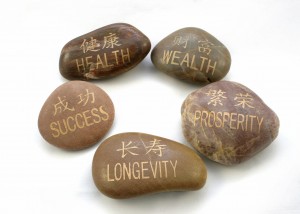Three Mindset Changes Enhance Your Career Trajectory

Three Mindset Changes – Enhance Your Career Trajectory
Positioning yourself in the marketplace and staying relevant to potential employers involves much more than simply developing career-specific skills and writing a great résumé. Your mindset and attitude play a large part in your professional success. In fact, there are three specific mental programming techniques that can make a huge difference in whether you fulfill your career aspirations or flounder occupationally.
Abundant Thinking
You can approach your career, job search, or anything in life from one of two viewpoints: scarcity or abundance. With scarcity thinking, the belief sounds something like this: “There are a limited number of jobs, and there are many more people who are qualified for any particular job. Therefore, I have to make sure I’m number one. Too bad there’s really no
unique way for me to stand out.” Scarcity thinking tends to fuel competitiveness, aggressiveness, and even learned helplessness. After all, why bother trying if you tell yourself that you don’t have a chance of succeeding anyway?
The flip side of scarcity thinking is abundant thinking. With abundant thinking, the inner dialogue sounds something like this: “There are plenty of opportunities available. It’s just a matter of finding the one that works best with my unique skill set and experience. With a little patience and time, I’ll be able to find the right position for me.” Abundant thinking tends to promote tenacity, persistence, and realism. It enables you to reflect on your gifts and talents in a more holistic fashion, rather than a narrow fashion.
Of course, abundant thinking doesn’t mean delusional thinking. You have to be realistic. For example, perhaps the career you want really does have a limited number of positions, such as being an astronaut. Mathematically, it’s true that there are a limited number of astronauts. If you think abundantly, though, you can say, “My chances of being an astronaut may be limited, but perhaps there’s a position that supports astronauts that I can investigate. So what are some astronaut-related occupations? Who supports astronauts? What technology do they use a lot? If they have a crisis, who helps them?” When you keep your focus on abundance rather than scarcity, you are better able to recognize the opportunities available to you.

Creativity
A positive effect of abundant thinking is that it fosters creativity, which is also important when seeking a new position or enhancing your professional life. For example, suppose you’re contemplating a career change. When many people start envisioning a new future for themselves, they immediately believe there is only one path to get there (scarcity thinking). However, there’s something called the law of equifinality, which means there are multiple paths to the same destination (abundant thinking). In essence, when you’re creative your goal might be fixed, but you recognize that there are multiple ways to achieve that goal.
Suppose you want to be a nurse because you’ve heard it’s a growing profession with many opportunities and high pay. At first you may just see one path: enroll in a bachelor’s in nursing program (BSN). If enrolling right now isn’t feasible, you may give up on the idea, believing there’s no way you can do it. Here’s where creativity comes into play. While enrolling in a BSN program is a valid path, it’s really just one option. You could also start out as an emergency medical technician (which requires less training), then get an associate’s degree or diploma in nursing, and then go to the BSN program. You could join the military and go to nursing school there. You could start by working in a support role within a hospital or medical practice to gain some medical experience, and then enroll in a BSN program. If you think creatively about what you want, you’ll find numerous ways to get to the end goal.
Of course, for some people, knowing they have numerous paths anywhere can be cognitively overwhelming, because human memory limits are, on average, seven bits of information. In other words, it’s difficult for many people to keep all those variables in their head. The good news is you don’t have to keep all the options in your head. You can use a spreadsheet to track the information or just jot it in a notebook. The key is to allow yourself to creatively think about your future so you can expand your possibilities.
Emotional Nonattachment
To decide on which path to take, you can’t be emotionally attached to one certain way. If you have scarcity thinking, you have one destination and one path, so you are, naturally, extremely emotionally attached. All your eggs are in one basket. If it works out to your advantage, you’re exhilarated. But if it works out to your disadvantage, you’re devastated. And if you’re uncertain as to how it will work out for a long period of time, you’re chronically anxious.
Being emotionally nonattached does not mean being apathetic or lethargic. Emotional nonattachment means having an underlying recognition that all things in life are temporary. Of course, this doesn’t mean you don’t want to commit yourself. It doesn’t mean you don’t want to fully enjoy and be in the experience. But it is the recognition that everything eventually goes away.
Here’s how emotional nonattachment can work for you in a job search. Let’s say you go into an interview and tell yourself that you have to have this job. You have to come out on top. You have to make sure they’re impressed with you. You have to make sure they extend a job offer. Clearly, you are emotionally attached. So, that may come out as you being over-enthusiastic, as being a little bit too pushy, or as being overly aggressive during the meeting. But, if you’re emotionally nonattached, you can be engaged in the conversation of the interview without being attached to what the outcome is. As a result, you come across as natural, relaxed, conversational, and sincere. Basically, being emotionally nonattached takes the pressure off of you, which naturally makes you look better. If you don’t get the job, you will still experience disappointment, but to a lesser degree. So it’s not about ignoring the emotion. By all means, feel the emotion; just don’t be attached to it.
A New You
When you engage in abundant thinking, focus on creativity, and practice emotional nonattachment, you’re actually changing your perception of your career, of the job market, and of yourself. As a result, you gain the confidence needed to make a major change in your professional life. In fact, the more you apply these three mindset principles, the more successful you’ll be in all areas of life.

